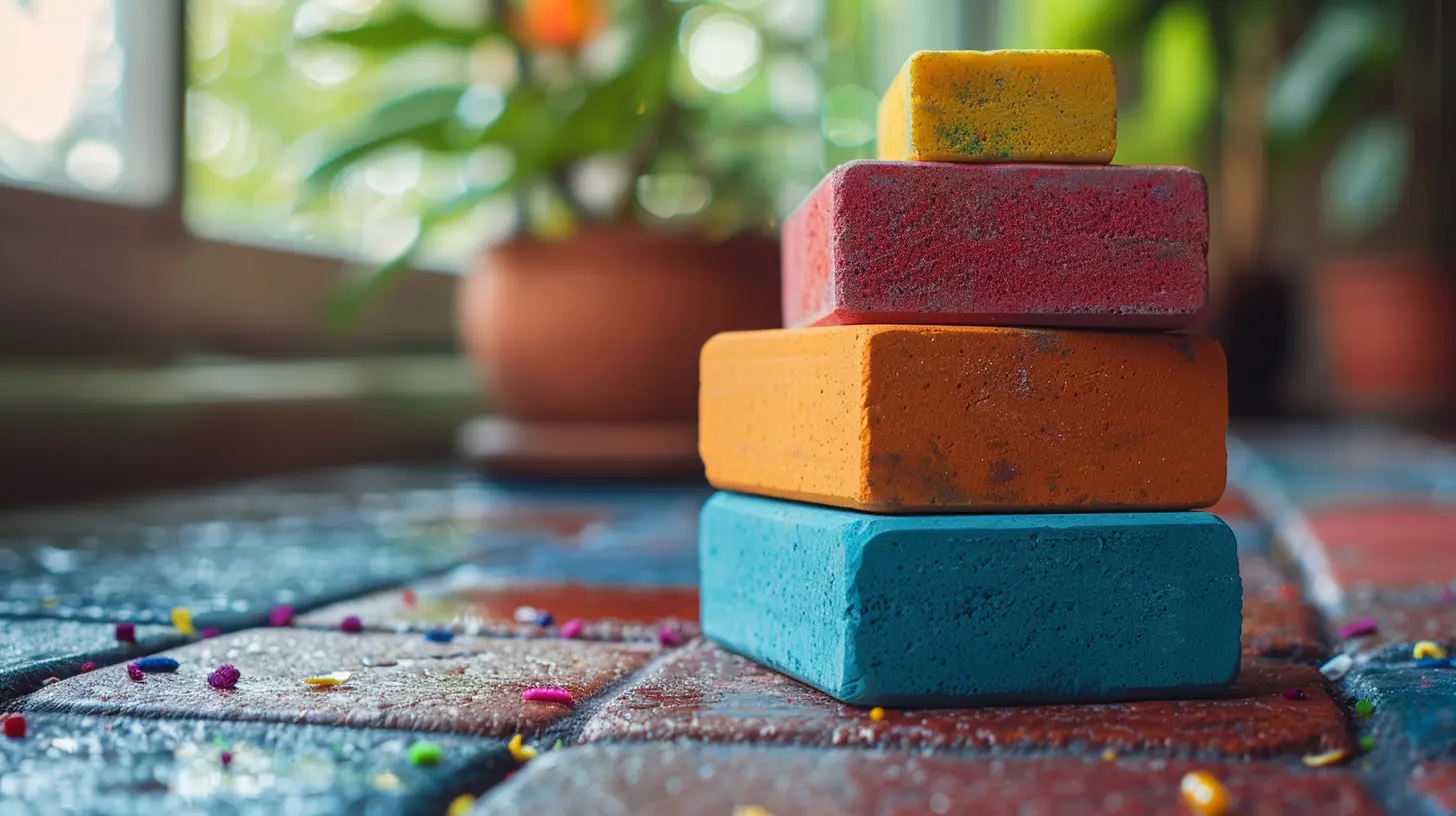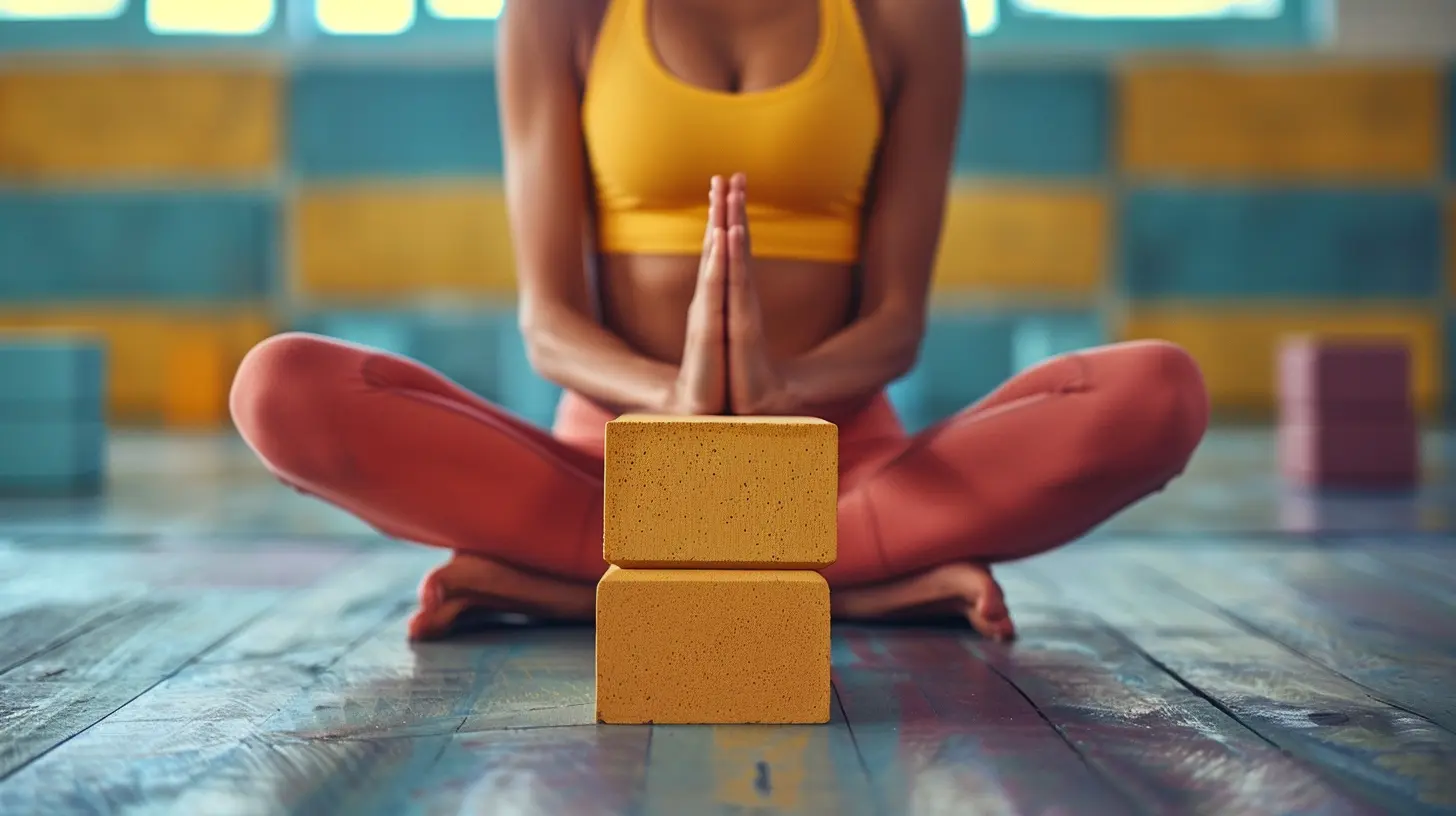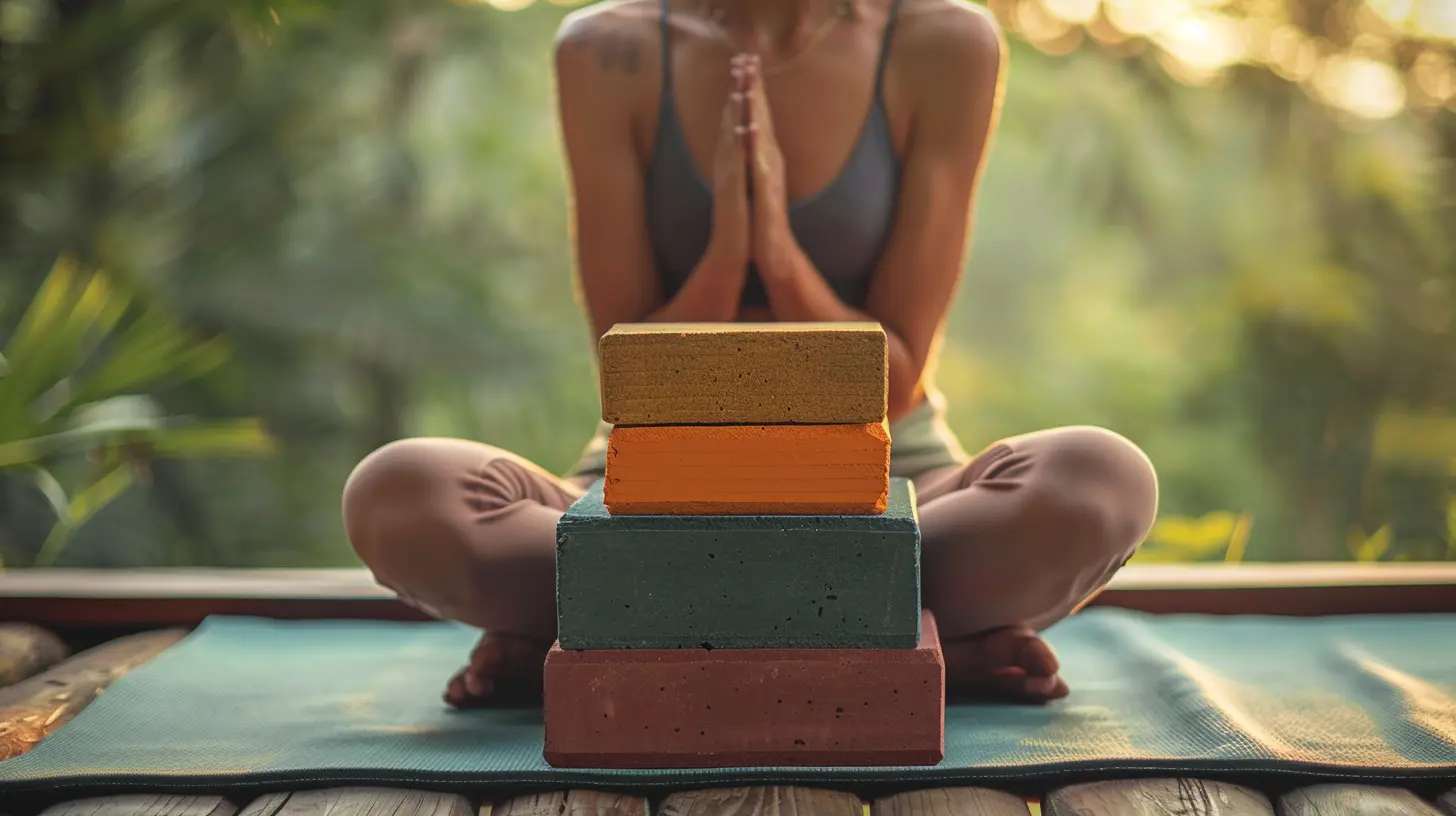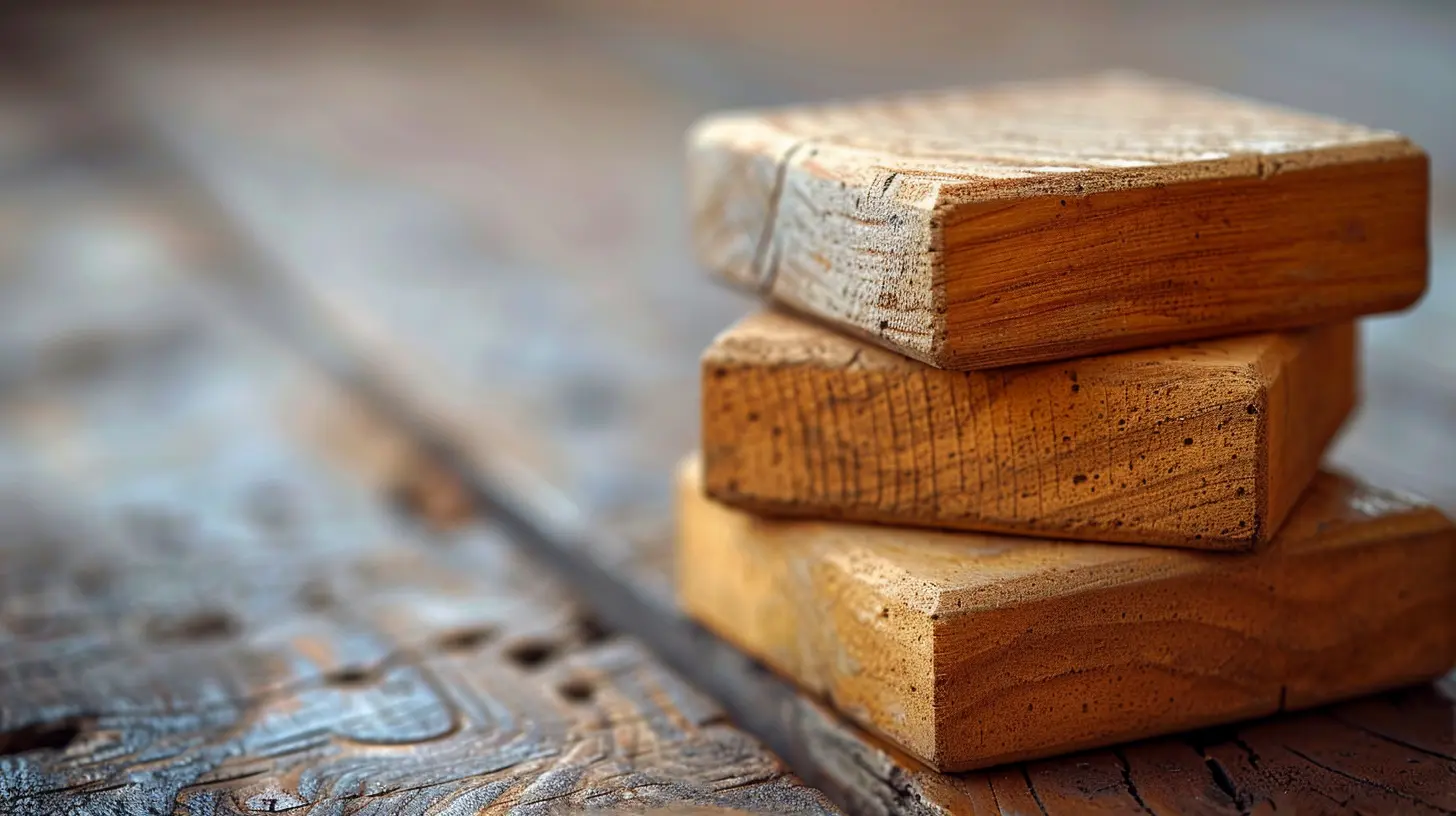The Best Yoga Blocks for Flexibility and Stability
2 June 2025
Yoga blocks are an absolute game-changer when it comes to deepening stretches, improving balance, and supporting proper alignment. Whether you're a beginner or an advanced yogi, the right yoga block can transform your practice by enhancing flexibility and providing much-needed stability.
But with so many options on the market, how do you know which yoga block is the best for you? Don’t worry—I’ve got you covered! In this guide, we’ll break down the best yoga blocks for flexibility and stability, covering their materials, sizes, benefits, and how to choose the right one for your practice. 
Why You Need a Yoga Block
If you think yoga blocks are just for beginners—think again! Even experienced yogis use blocks to refine poses, prevent injuries, and get deeper into their stretches.Yoga blocks serve multiple purposes:
- Provide support – They help maintain balance in challenging poses.
- Enhance flexibility – Blocks aid in stretching muscles safely.
- Improve alignment – Using a block ensures proper posture and form.
- Reduce strain – They prevent overextension and unnecessary stress on joints.
Simply put, a yoga block is like your best workout buddy—it’s there to lift you up when you need a boost and keep you steady when things get shaky. 
What to Look for in a Yoga Block
Before diving into the best yoga blocks, let's discuss what makes one block better than another. Here are the key factors to consider before purchasing one:1. Material
Yoga blocks come in three main materials:- Foam Blocks – Lightweight, soft, and best for beginners or restorative yoga.
- Cork Blocks – Firm, eco-friendly, and provide great grip.
- Wooden Blocks – Extremely durable but heavier and less forgiving than foam or cork.
2. Size
Most yoga blocks come in standard dimensions of 9" x 6" x 4", but some variations exist. Smaller blocks are great for those with smaller hands, while bigger blocks offer additional support.3. Density & Firmness
Softness vs. firmness is a personal preference. Foam blocks tend to have more give, while cork and wood are sturdier and more supportive.4. Grip & Texture
A slippery block can be frustrating, especially during sweaty workouts. Cork blocks have a naturally rough texture, while foam and wooden blocks can sometimes get slippery.
The Best Yoga Blocks for Flexibility and Stability
Now that you know what to look for, here are some of the best yoga blocks available today!1. Manduka Cork Yoga Block – Best for Stability
Why it’s great:- Made from sustainable cork
- Extremely firm and supportive
- Anti-slip surface, even when hands are sweaty
Cork blocks are known for their durability, and Manduka’s version is one of the best. If stability is your main concern (especially for standing poses like Half Moon), this block won’t let you down. While it’s heavier than foam blocks, the sturdiness is worth it.
2. Gaiam Essentials Foam Yoga Block – Best for Flexibility
Why it’s great:- Lightweight and soft
- Budget-friendly
- Comfortable for restorative yoga
If comfort is your priority, the Gaiam Essentials Foam Block is a fantastic choice. Foam blocks provide a gentler surface, making them great for deeper stretches and restorative yoga poses like Reclining Butterfly.
3. Hugger Mugger Bamboo Yoga Block – Most Durable
Why it’s great:- Made from eco-friendly bamboo
- Extremely sturdy and long-lasting
- Sleek, polished design
Wooden yoga blocks like this one are solid, durable, and beautiful. If you love a more traditional feel to your props, this is a great pick. However, keep in mind that wooden blocks can be unforgiving on sensitive joints, so they might not be the best choice for everyone.
4. Trideer Cork Yoga Block (Set of 2) – Best Value
Why it’s great:- Comes as a set of two
- Made from odor-resistant, high-density cork
- Provides great grip and stability
Getting a set of two cork blocks at a reasonable price is a win! This set is perfect for those who like using blocks in both hands for balance poses or want extra support in supine stretches.
5. URBNFit Foam Yoga Blocks – Best for Beginners
Why it’s great:- Extra lightweight
- Soft, comfortable, and beginner-friendly
- Comes with an instructional guide
If you're just starting yoga and need a gentle introduction, these foam blocks are a great choice. They are easy to carry, comfortable on the hands, and offer just enough support without being too hard. 
How to Use Yoga Blocks for Maximum Benefit
Now that you have your yoga block, how do you make the most of it? Here are a few key ways to use them for both flexibility and stability:For Flexibility:
1. Seated Forward Fold – Place a block in front of you and rest your forehead on it to deepen the stretch gradually.2. Reclining Butterfly Pose – Place a block under your lower back for a gentle heart-opening stretch.
3. Pigeon Pose – If your hips feel too tight, place a block under the hip of your bent leg for added support.
For Stability:
1. Triangle Pose – Rest your hand on a block instead of reaching all the way to the floor.2. Half Moon Pose – Use a block to stabilize your supporting hand, helping to maintain balance.
3. Bridge Pose – Squeeze a block between your thighs to activate your core and engage your legs.
Yoga is all about progression—not perfection. Blocks help you move safely, build strength, and push your flexibility to new heights without compromising form.
Choosing the Best Yoga Block for You
Still unsure which block to get? Here’s a quick recap based on your needs:- If you need stability → Go for cork or wood.
- If you prioritize comfort and flexibility → Foam blocks are your best bet.
- If you want long-lasting durability → Wooden blocks are ideal.
- If you're on a budget → Foam or cork sets offer great value.
Choosing the right yoga block is like picking the perfect pair of shoes—it depends on your practice, preference, and how much support you need.
Final Thoughts
Yoga blocks are an essential part of any yogi’s toolkit, whether you're just starting out or have been practicing for years. They help improve flexibility, enhance stability, and make challenging poses more accessible.Think of them as your personal spotters—keeping you safe while helping you reach new levels in your practice. Whether you go for a soft foam block, a sturdy cork option, or a traditional wood block, the most important thing is that it supports your journey.
So, grab a block, dive into your practice, and enjoy the ride toward greater flexibility and strength!
all images in this post were generated using AI tools
Category:
Sports EquipmentAuthor:

Uziel Franco
Discussion
rate this article
2 comments
Misty Mahoney
Yoga blocks: because sometimes your body needs a little extra help to not resemble a pretzel in a blender. Embrace the support, and remember, flexibility is just a fancy word for ‘not falling over!’
June 11, 2025 at 10:26 AM

Uziel Franco
Absolutely! Yoga blocks are essential tools that provide support and enhance flexibility, making your practice safer and more enjoyable. Embrace the journey! 🌟
Mira McVicker
While the article highlights beneficial yoga blocks for enhancing flexibility and stability, it misses an opportunity to discuss the importance of individual variability in practice. Each yogi's needs differ, and personal exploration alongside recommendations could offer a more tailored approach to finding the right block for optimum performance and safety.
June 7, 2025 at 11:05 AM

Uziel Franco
Thank you for your insightful comment! I appreciate the importance of individual variability in yoga practice and will consider including a more personalized approach in future articles.


